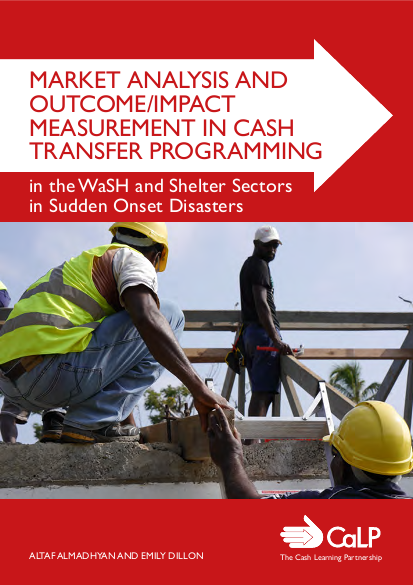
Over the past five years, cash transfer programming has become an increasingly popular modality of humanitarian intervention. Recently, unconditional and unrestricted MPGs have been increasingly championed as a default modality, based on evidence collected by organisations such as the Overseas Development Institute and CaLP. This increased popularity of CTP, and particularly unconditional and unrestricted MPGs, has prompted a need for a greater understanding of the market-level feasibility of such programming, as well as the intended and unintended consequences of the programming.
As such, the Cash Learning Partnership (CaLP) has commissioned this project on market analysis and outcome and impact measurement practices in WaSH and shelter following sudden-onset disasters. The objective of this study is to aggregate and examine the current market analysis and outcome and impact measurement practices in WaSH and shelter following sudden-onset disasters, and provide recommendations to address the central barriers to conducting market analysis and outcome and impact measurements.
The findings and recommendations of this report are aimed at humanitarian practitioners in WaSH and shelter sectors, the WaSH and shelter clusters, CaLP, and donors.